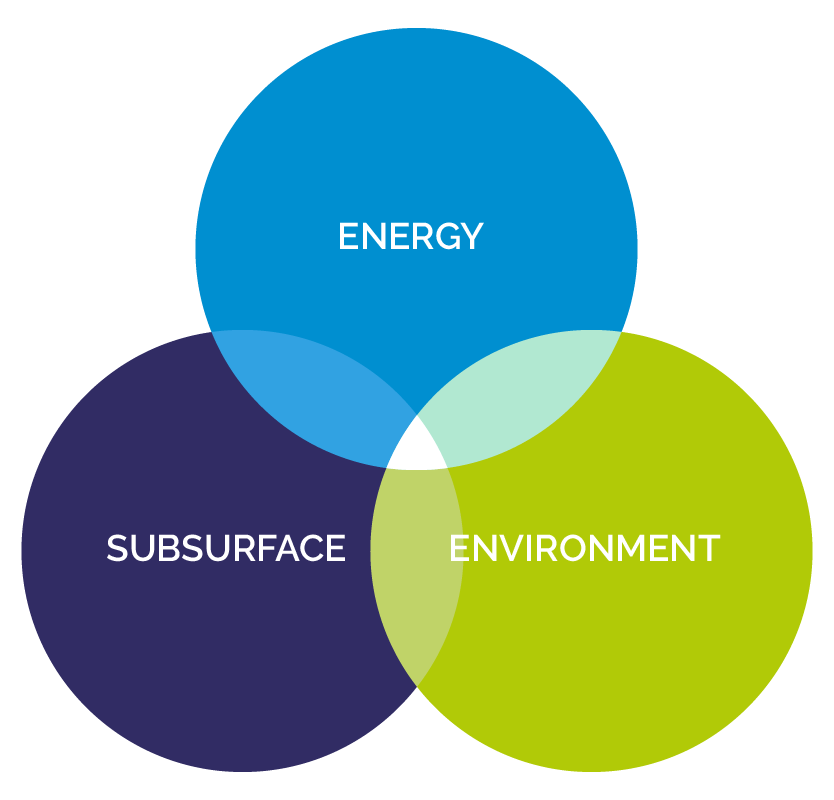In an international context marked by both an increase in energy consumption and the challenges of the energy transition, ISIFoR is at the core of subsurface energy and environmental challenges. The institute aims to foster, through innovation, the development of French companies across:
– the improvement of the environmental performance about georesources exploitation,
– the ecology and energy transition by lowering the carbon intensity.
Our strategy

ISIFoR has therefore defined a roadmap based on four socio-economic challenges:
ECONOMIC AND SOCIETAL CHALLENGES
TECHNO-SECTORIAL SECTORS at ISIFoR
Catalyze the development of exploration and production techniques for georesources, to guarantee the competitiveness of companies in the sector
Improve the understanding and characterization of geological systems (basin dynamics, reservoir characterization, rock fluid interactions and fracturing, etc.), develop the predictive capacities of exploration techniques (multi-method imaging, field-model correlations), in particular for complex regions (mountain forelands, deep offshore, etc.)
Increase the operating lifetime of installations by developing enhanced recovery techniques and techniques for stimulating productive zones to increase recovery rates
Identify new techniques for characterizing and producing complex reservoirs
Identify new techniques for valorizing georesources (mineral recovery, strategic metals, etc.)
Manage risks and reduce the environmental footprint for georesource exploration and production activities
Reduce the impact of operations on the water cycle (water consumption in oil & gas processes, water separation, pollution of groundwater layers, etc.)
Reduce the environmental impact of activities for the exploration & production of unconventional resources
Develop monitoring data (satellites, drones, lasers, fiber optics, radar, micro-seismic and 4D seismic, potential methods, etc.)
Develop bottomhole monitoring and analysis techniques
Data processing methods and technologies
Foster the energy mix through the development of decarbonated energies (in particular deep geothermal energy) and underground energy storage
Develop knowledge and methodologies for evaluating subsurface characteristics and capacities as regards the storage or extraction of resources (including Human and Social Sciences)
Reduce costs and increase the yield of deep geothermal energy installations (optimization and development of innovative stimulation technologies, innovative exchangers, energy optimization, new materials, fluid characterization, etc.)
Improve and develop economically competitive techniques that enable underground heat and energy (natural gas, gas mixtures, biogas, compressed air, hydrogen, etc.) storage to be included and connected into energy networks, while factoring in Human and Social Sciences
Reduce the environmental impact of high-impact economic activities through the capture and storage of CO2 and its valorization
Develop techniques that are innovative and economically competitive for CO2 capture, transportation, storage and valorization
Study, understand and predict the societal perception of the activity
